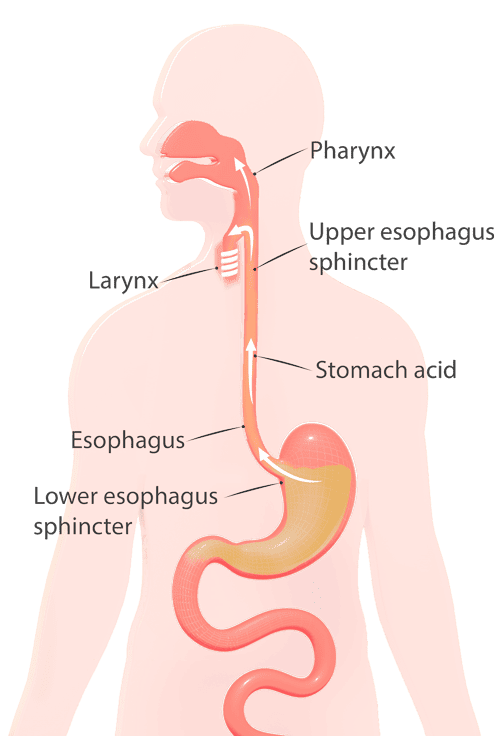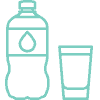
What is acid reflux – GERD?
Gastroesophageal Reflux Disease (GERD), also commonly known as acid reflux, occurs when the oesophagus sphincter weakens or malfunctions. This causes the acid from the stomach to flow back into the oesophagus and cause irritation to the oesophagus lining.
Signs and symptoms of acid reflux
- Burning sensation in your chest (heartburn)
- Upper abdominal or chest pain
- Nausea
- Sour or bitter taste in the throat
- Difficulty in swallowing
How is acid reflux diagnosed?
The specialist will enquire about the symptoms you have and conduct a series of test to diagnose GERD. These test can include:
Naso-endoscopy examination
The specialist will put a scope through the nasal cavity or the throat to check the back of the throat.
Barium swallow
This is a diagnostic test that will require patients to drink a chalky barium drink before taking an X-ray to help with the diagnosis of any oesophagus condition.
How is acid reflux treated?
Medication
The specialist will evaluate a patient’s condition and prescribe medication to help with the reflux.
How can I treat acid reflux at home?
Maintain a healthy weight

A heavier weight can spread the muscular structure of the lower oesophagus sphincter, decreasing the pressure that holds the sphincter, leading to reflux.
Stop smoking
Nicotine in cigarettes can cause the relaxation of the lower oesophagus, causing reflux to happen.
Increase the intake of high fibre food

Food that are high in fibre can reduce the effect of reflux. Avoid alcohol, chocolate, peppermint, spicy, and fatty food in your diet as it may help reduce reflux.
Avoid late-night meals

Gravity helps keep acid in the stomach and acid production increases during mealtime. Lying in bed after meal can result in reflux. It is advisable to finish eating three hours before you go to bed.
Sleeping on incline
Using a pillow or support to help keep the upper body above the legs can help promote the flow of acid back to the stomach, reducing acid reflux.
Reduce caffeine intake

Caffeine or caffeinated drinks, such as coffee, tea, and soft drinks, can upset the stomach’s pH resulting in reflux.
Make An Appointment
Make an appointment or contact the ENT clinic to consult an ENT Specialist about your condition. To make an appointment, select "Specialist Appointment". Under Specialist Appointment Details, select "Ear, Nose & Throat".
Make an enquiry. We will get back to you within 3 working days. You can reach us at 6311 1229.
References
hopkinsmedicine.org - Barium Swallow (Link)
health.harvard.edu - 9 at-home treatments for acid reflux (Link)
mayoclinic.org - Gastroesophageal reflux disease (GERD) (Link)
healthline.com - Everything You Need to Know About Acid Reflux and GERD (Link)
medicalnewstoday.com - What is acid reflux? (Link)